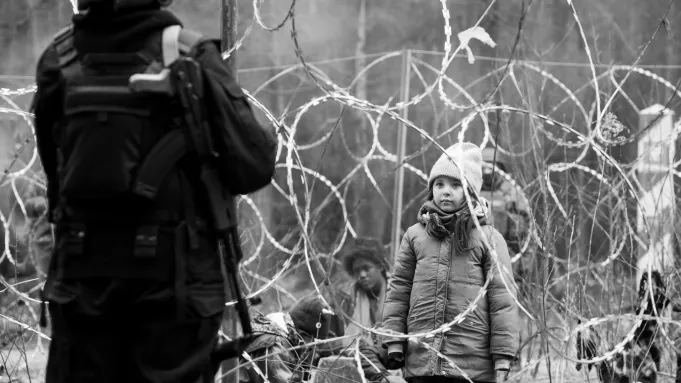In light of the distressing situation of migrants attempting to cross the border between Poland and Belarus, renowned director Agnieszka Holland has taken it upon herself to shed light on their harrowing journey through her new film, “Green Border”.
Making its debut at the Venice Film Festival on Tuesday, “Green Border” presents an intertwined narrative of refugees, humanitarian workers, activists, and border guards, all of whom converge in the bleak and marshy woodlands that demarcate Poland and Belarus. The influx of migrants to this border escalated in 2021 when Belarus, known for its close ties with Russia, initiated travel agencies in the Middle East. These agencies alluded to offering an alternative, albeit unofficial, entryway into Europe. This strategic move was perceived by the European Union as an attempt to instigate a crisis.
Poland’s stance was firm: it denied migrants access. As a result, countless individuals found themselves trapped in a bitterly cold no-man’s land. Amplifying the dilemma, Poland momentarily instituted an exclusion zone, barring journalists and human rights advocates from nearing the region to document the reality. Speaking about the challenges, Holland remarked, “Given the inaccessibility to documentarians and journalists, our recourse was to harness fiction to depict the unfolding events—a realm I’m familiar with.”
The director emphasized the essence of her film: “Our objective was to depict this ordeal in its full intricacy, striving to represent and amplify the voices of those who’ve been muffled.”
Holland’s film, shot in evocative black-and-white, chronicles the heart-wrenching experiences of a Syrian family and an Afghan woman. They are incessantly and mercilessly tossed across the border by unfeeling guards, while altruistic activists make relentless attempts to ensure their safety. Holland, who has an extensive filmography dealing with subjects such as the Holocaust and Communist oppression, opines that such dismissive attitudes question the foundational ideals of the European Union. She warns, “Persisting on this trajectory could see the EU, a beacon of freedom, democracy, and human rights, morph into an impenetrable fortress.”
The film is unreservedly critical of Poland’s disavowal of migrants originating from the Middle East and Africa. This stands in stark contrast to Poland’s reception of over a million refugees who sought refuge from the Russian incursion into Ukraine in early 2022.
However, Maja Ostaszewska, the film’s principal actress, who personally visited the forests in 2021 to assist the migrants, asserts that “Green Border” is not a proclamation of political sentiment. She believes the film prompts an age-old moral inquiry: “Faced with someone seeking refuge at your doorstep, what choice would you make? Would you extend a hand or feign ignorance?”
With “Green Border” being among the 23 contenders vying for the coveted Golden Lion award at the Venice festival, audiences and critics alike are keenly anticipating its reception.
READ MORE:
